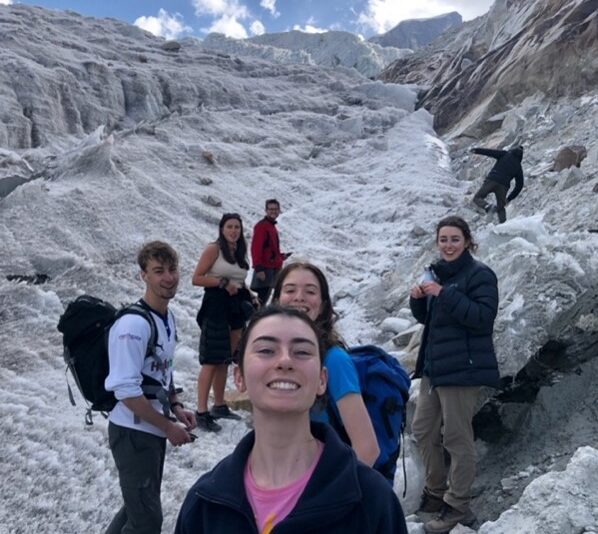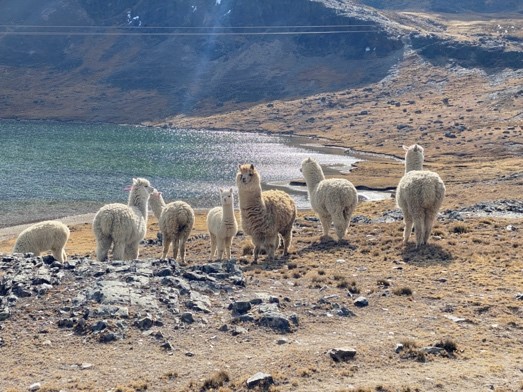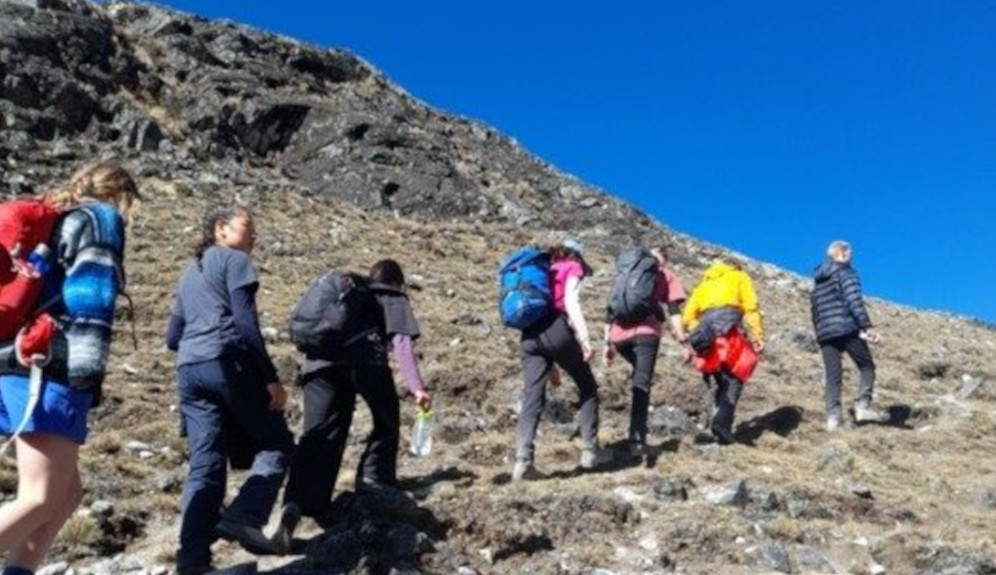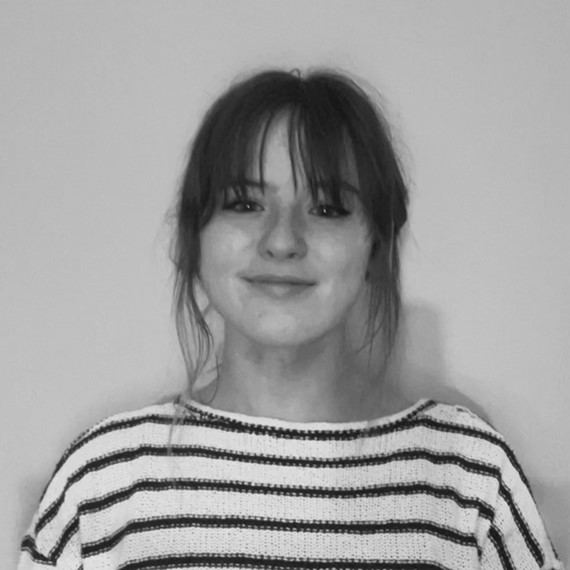In this post, Isla Petrie, a senior student at the Medical School, reflects on an exciting student-led research expedition in the mountains of South America, organised through Student Partnership Agreement funding. She outlines her experience co-leading a group of student volunteers and conducting research in difficult conditions, as well as the pedagogical benefits of such projects. This post is part of the Student Partnership Agreement Hot Topic.
This summer, I was lucky enough to be involved in The University of Edinburgh’s student-led APEX6 high-altitude expedition to the Bolivian Andes. I was one of four senior medical students from Edinburgh Medical School who sought out to materialise this unique research opportunity. This was the sixth trip in a string of high-altitude expeditions since 2001 to investigate the effect of low oxygen levels (hypoxia) on the way the human body works. Our collective goal was to conduct important and impactful research through multiple projects, aiming to further our understanding of the effects of altitude and hypoxia on human physiology. In doing so, we hoped to contribute to informing the safety of travellers ascending to altitude and facilitate the development of treatment options: not only for high-altitude illnesses, but also for the millions of critically ill patients affected by hypoxia worldwide.
The expedition proved an incredibly exciting experience for the students involved. These involved the promise of unparalleled opportunities, such as participating in field research and immersing themselves in altitude medicine, being part of a team in challenging conditions, and the perks that come with exploring new parts of the world. We recruited 34 students from The University of Edinburgh, encompassing a wide range of degrees and year groups. These students were the most important part of our expedition. They volunteered to come with us to South America not only to help us in our field lab but also to be subjects of these studies. Talking to the volunteers, it was interesting that they emphasised the value of seeing research from the other side of the microscope.
Research was integral to our expedition and was what took us to such heights. We ran six projects, each led by a different student. Through these we explored the effect of low oxygen on our immune systems, lungs, genetics, circadian rhythms, eyes, and menstrual cycles; the projects are all in the process of being written up post-expedition. The students learned huge amounts by following each of these projects from start to finish. They saw not only the work that was carried out on the expedition but the immense amount of planning and thought that went into each of them. Students were also given the opportunity to develop hands-on lab and clinical skills from pipetting to taking blood samples. These experiences will be valuable for their future studies.

What particularly struck me was the enthusiasm of the volunteers towards this unique research. This was particularly striking in our field lab that we set up in the Refugio, up the 5000-metre mountain Huayna Potosi. The lab was always bustling with volunteers participating in data collection. Their enthusiasm was infectious.
“This was a highlight of my whole university experience. I have made such good friends and had such an amazing few weeks.” – APEX6 volunteer
My own project investigated the effect of hypoxia on how your eyes adjust to the dark. This is a problem that was first identified by pilots in World War II but has continued to be an issue for athletes who train at altitude. It was one of the projects that required the most help from volunteers as data collection took a long time. It gave me the amazing opportunity to work with leaders in the field, from Johns Hopkins University and Moorfields Eye Hospital, alongside collaborating with our student volunteers. Teamwork was vital as I could not have completed the data capture by myself. I was able to refine my own communication and teaching techniques, teaching the volunteers to use the complex equipment. The volunteers in turn helped me and each other when there was any uncertainty. The feedback from our post-expedition student experience questionnaire was overwhelmingly positive. The team rated the project highly and really enjoyed the amount they could contribute.

As well as getting involved in research, a key aim of the expedition was to live together in a supportive environment. On the expedition, the volunteers were part of a tight-knit team, living in close quarters for a week. Exposure to this uncommon scenario developed their interpersonal skills and resilience and was part of what made it such an unforgettable experience. New friendships were formed over card games, gastrointestinal upsets, and treks. The team that travelled to Bolivia as part of APEX6 was certainly supportive and diverse, helping each other in the difficult conditions.
Another key part of the expedition was encouraging students to immerse themselves in Bolivian culture. This included engaging with locals, practising Spanish, and appreciating Bolivian traditions. Post-expedition, volunteers travelled in groups farther afield, gaining greater exposure to South American culture. The broadening of horizons, sense of being part of a team, and the meaningful connections all contributed to the wellbeing and reward of being volunteers.

APEX6 was an incredible opportunity and is something that I am so proud to have been a part of. It enabled us to pursue interests beyond the scope of the traditional curriculum, establish connections between researchers, and pursue publications in high-impact journals. By autonomously conducting the expedition, we have developed skills including organisation, teamwork, international communication, planning, and budgeting – skills transferable to our professional lives. We hope we have inspired a new committee to continue the APEX legacy and a new generation of researchers. I cannot wait to see what APEX7 will do.
You can read Christopher Graham’s reflections on his experiences as an APEX5 student leader in a previous blog post here.
ISLA Petrie
Isla Petrie is a 5th year medical student at The University of Edinburgh. She was the head of sponsorship and events as part of the committee for the APEX6 high-altitude expedition to Bolivia (Summer 2022).



